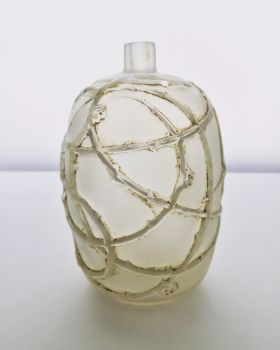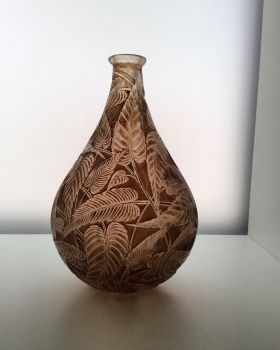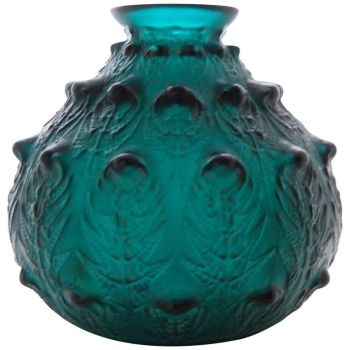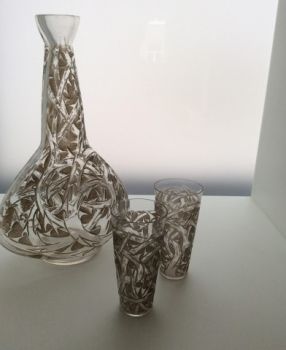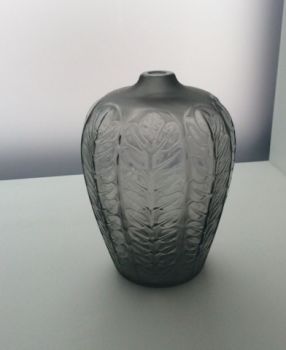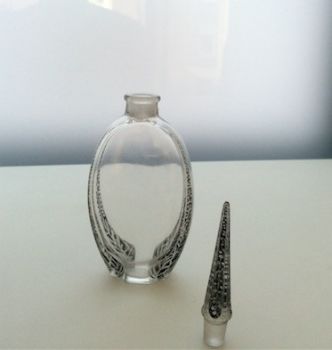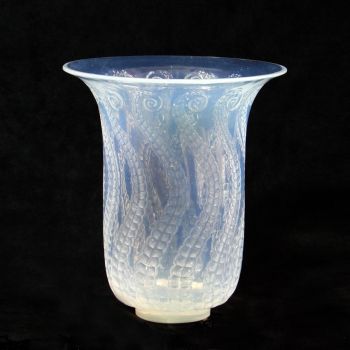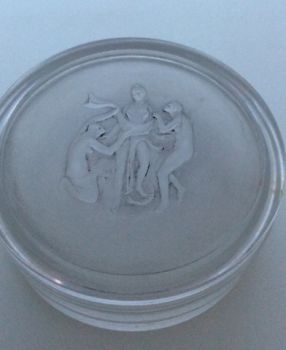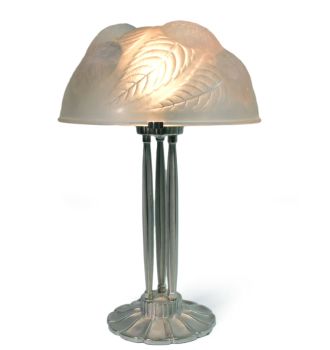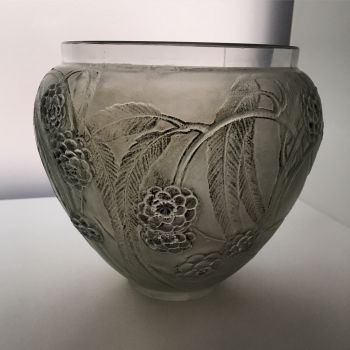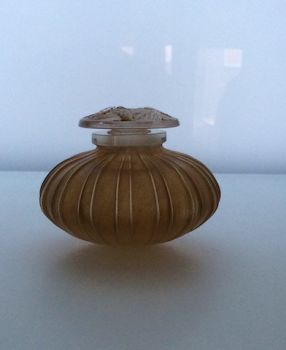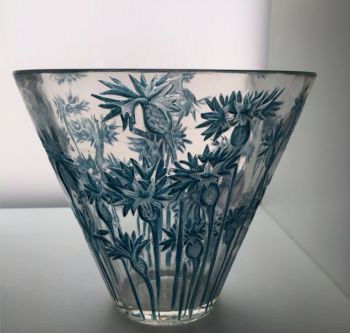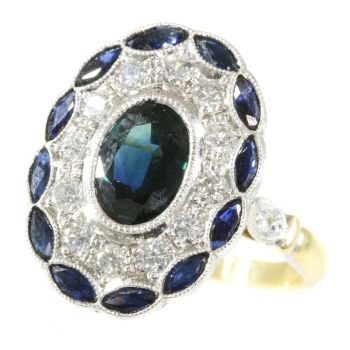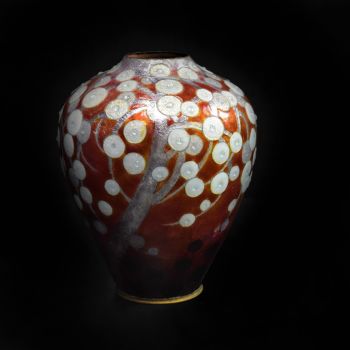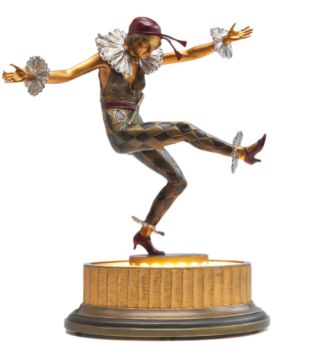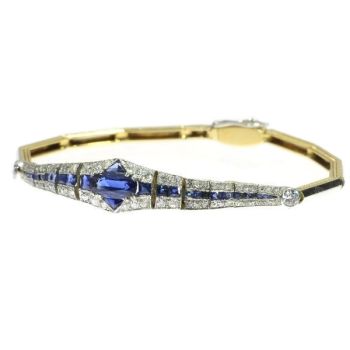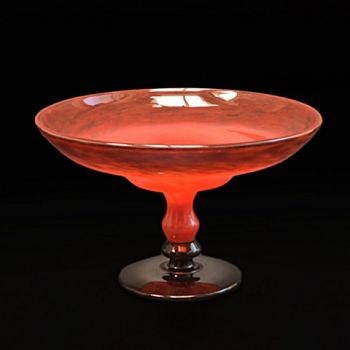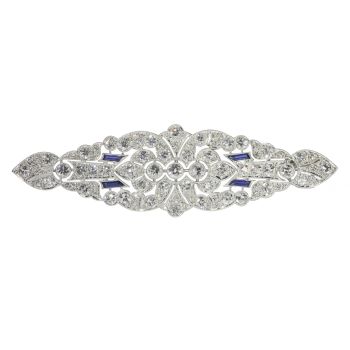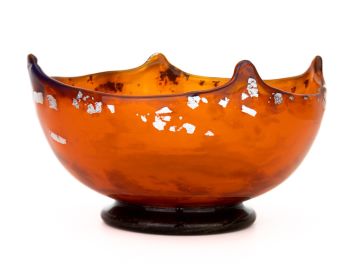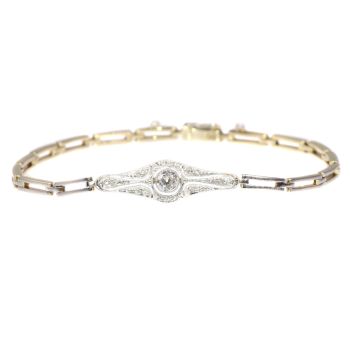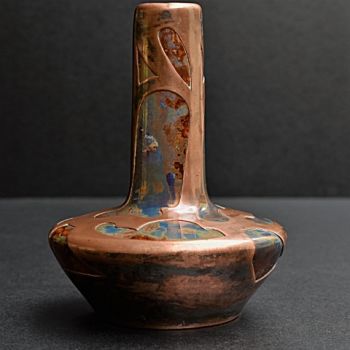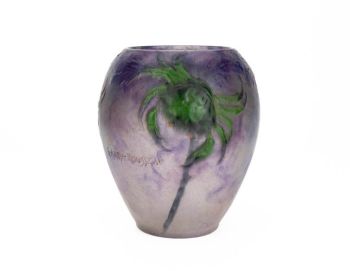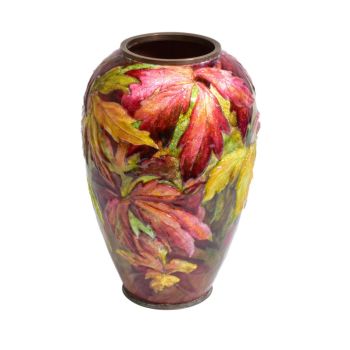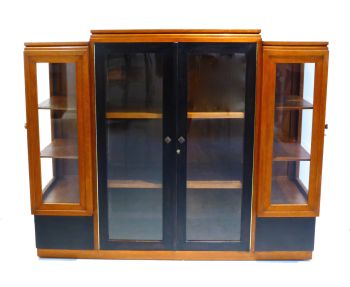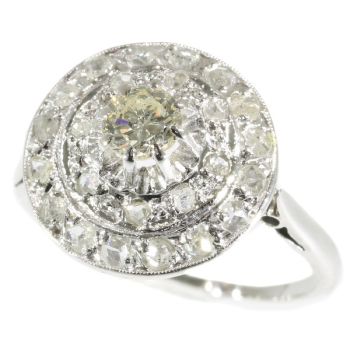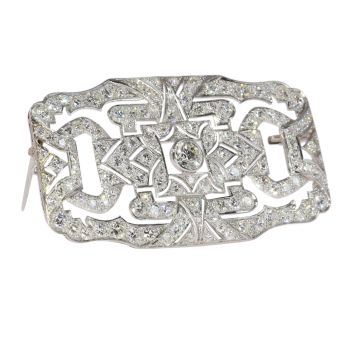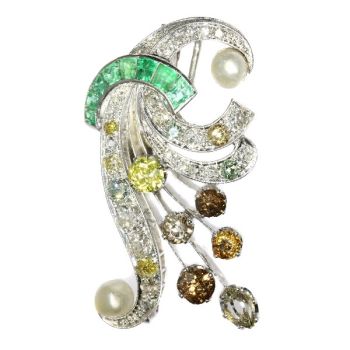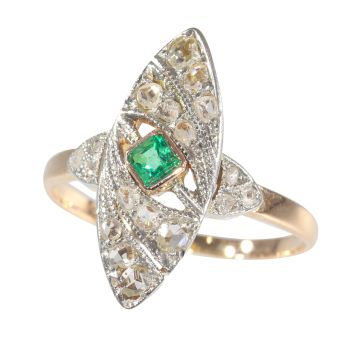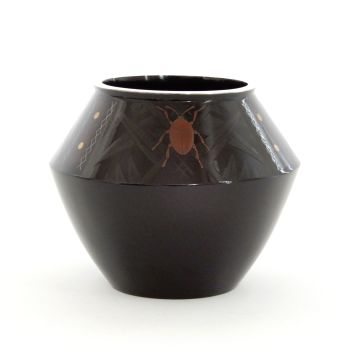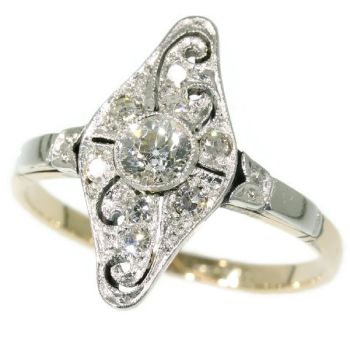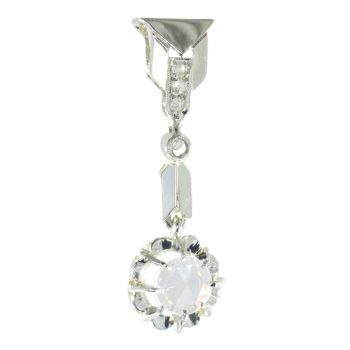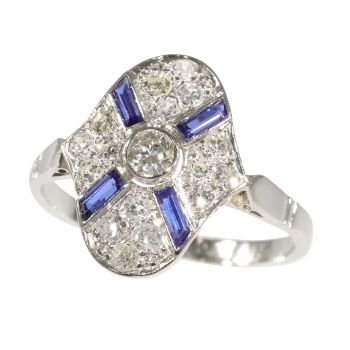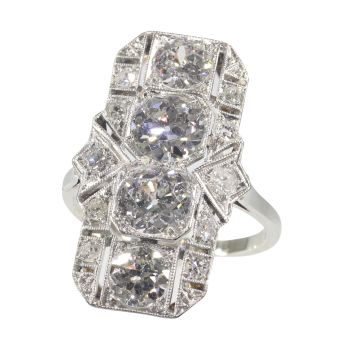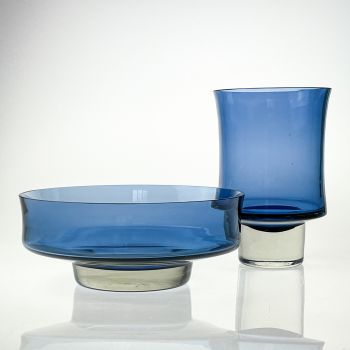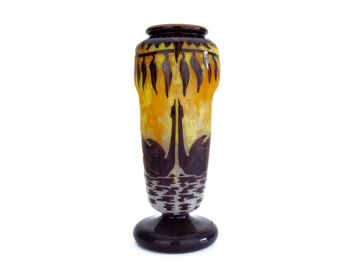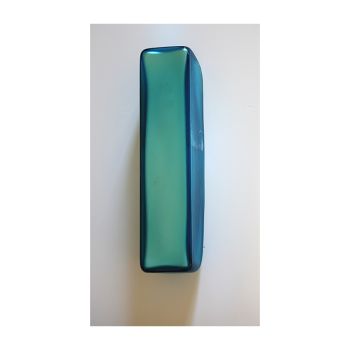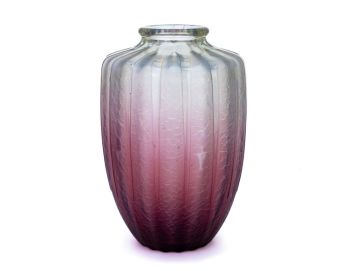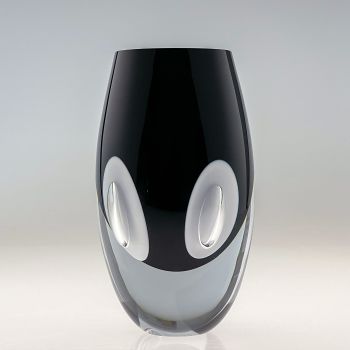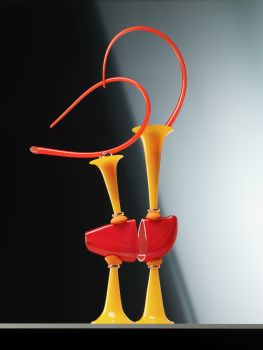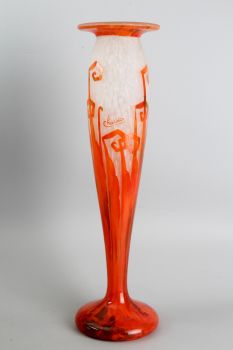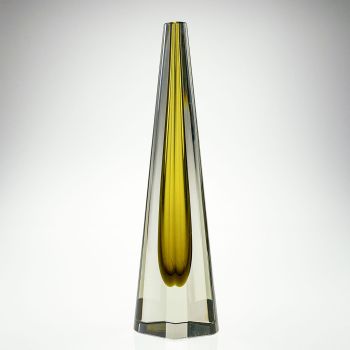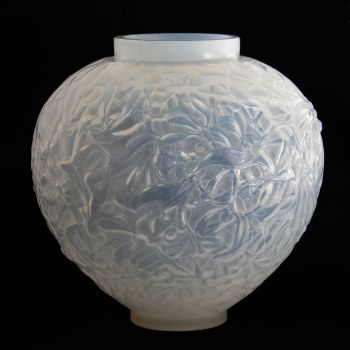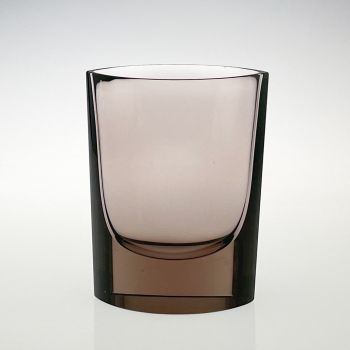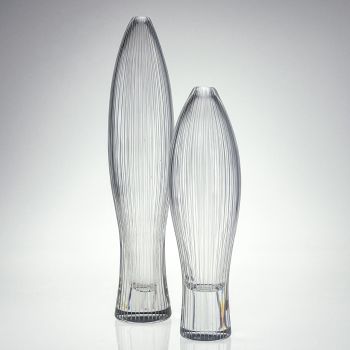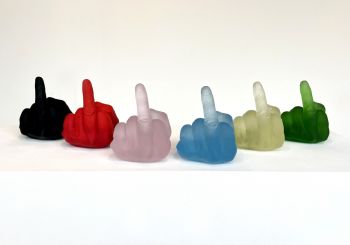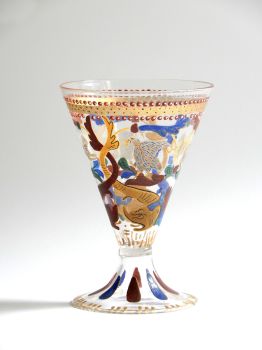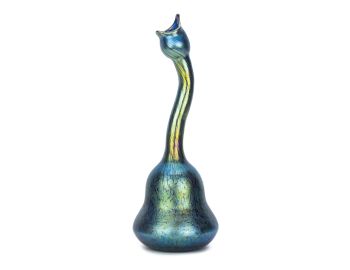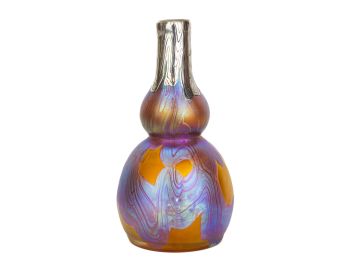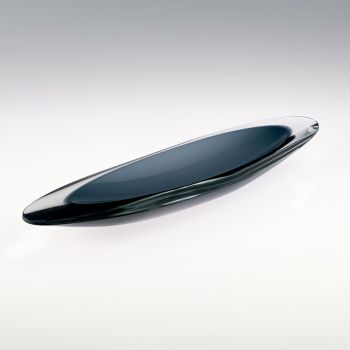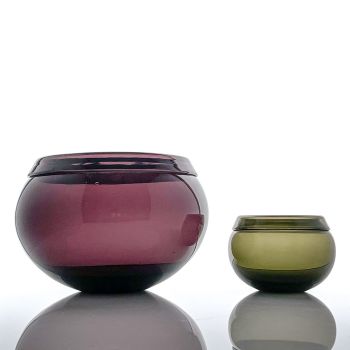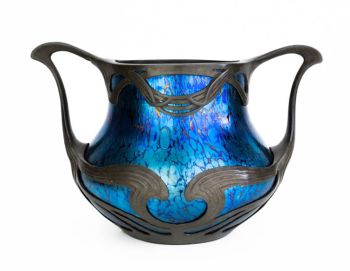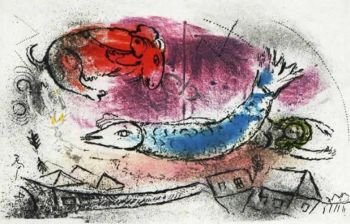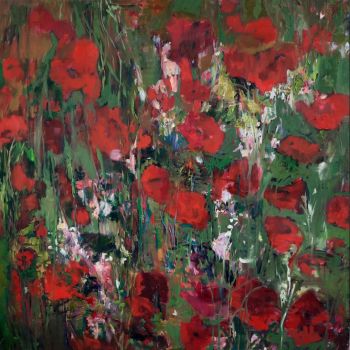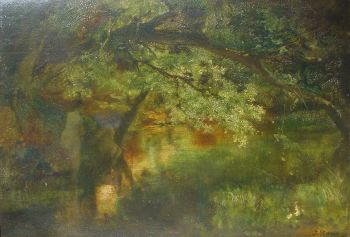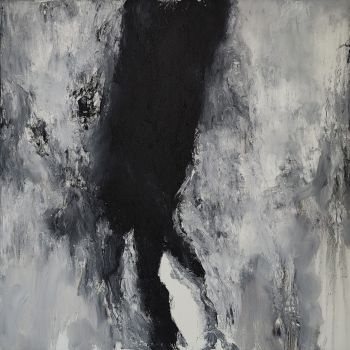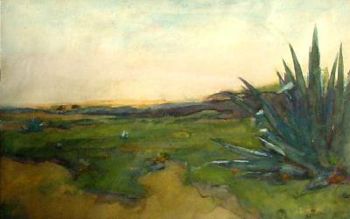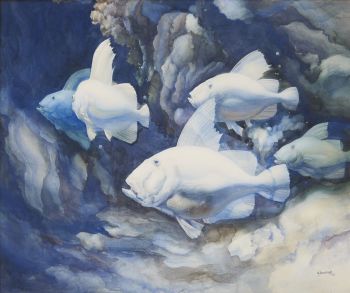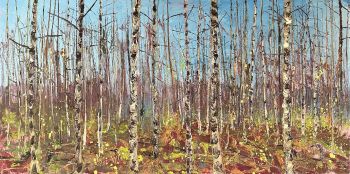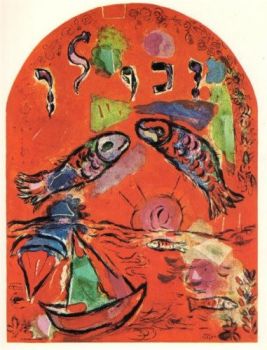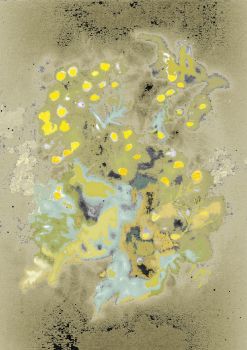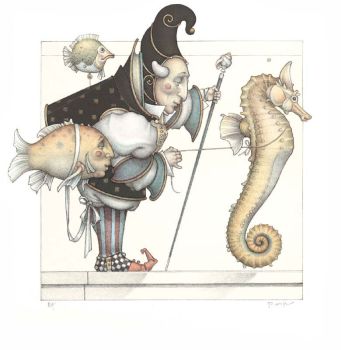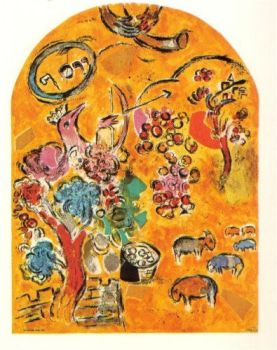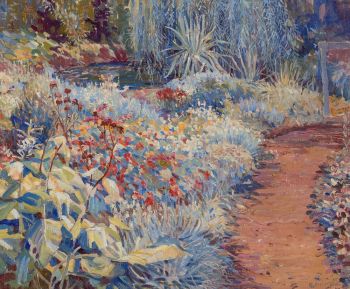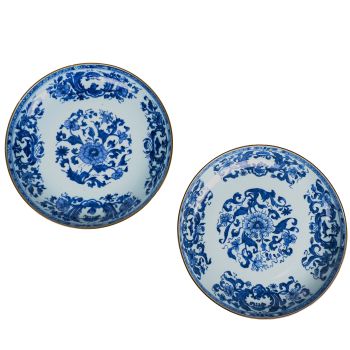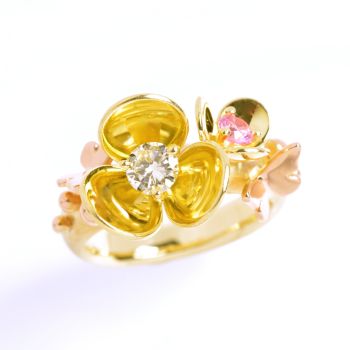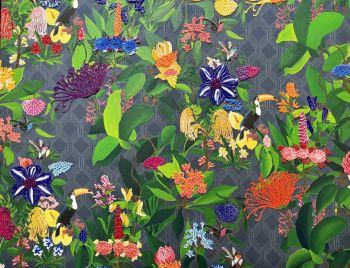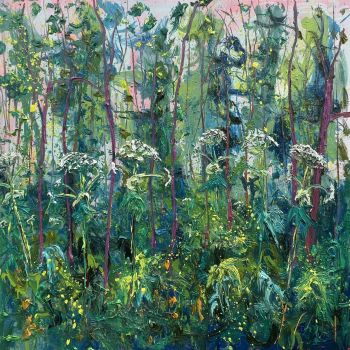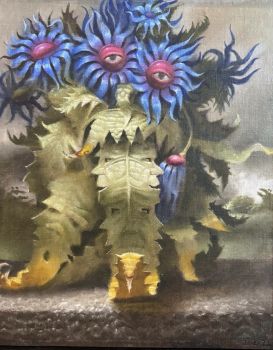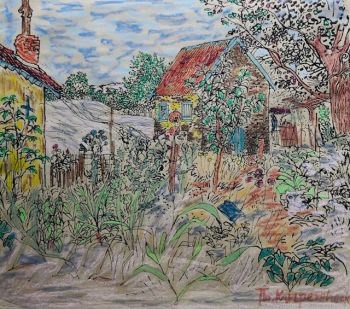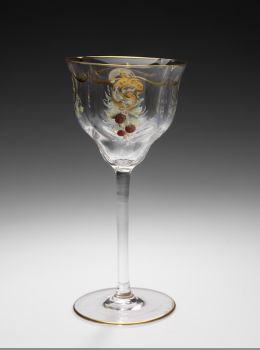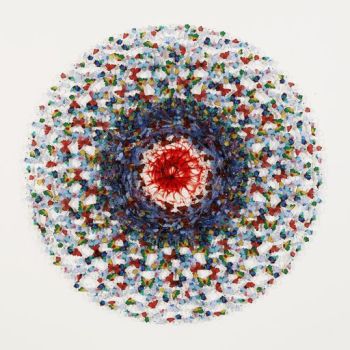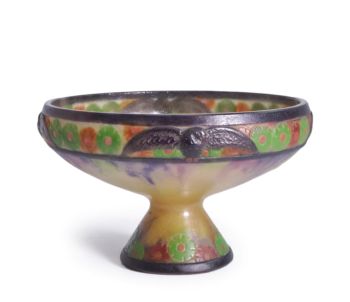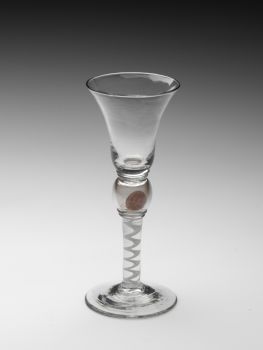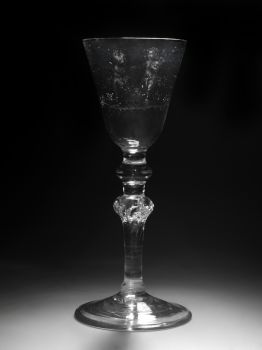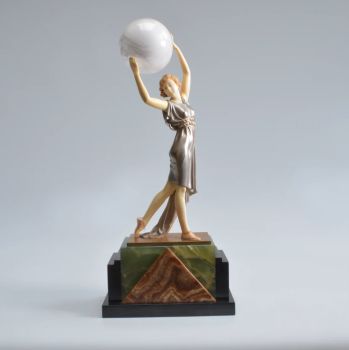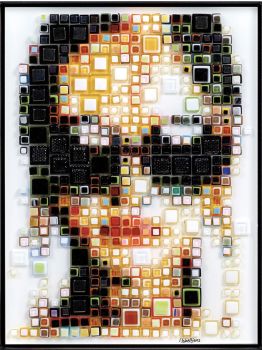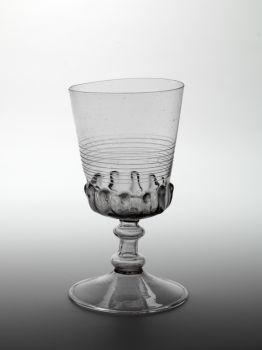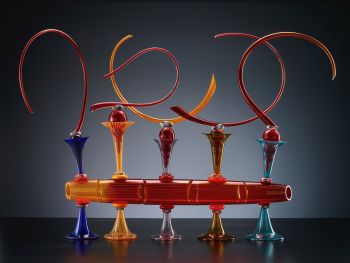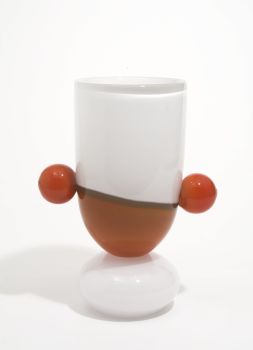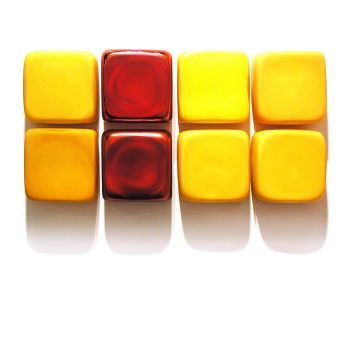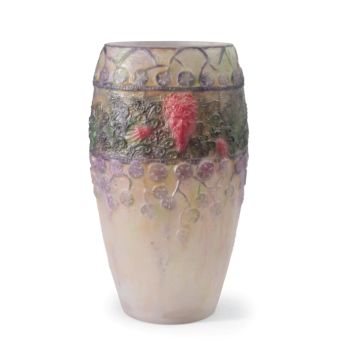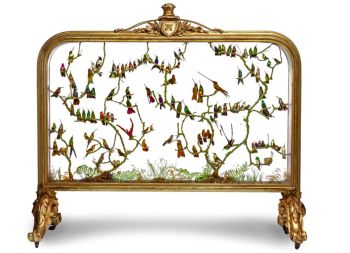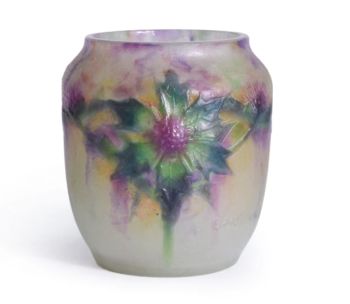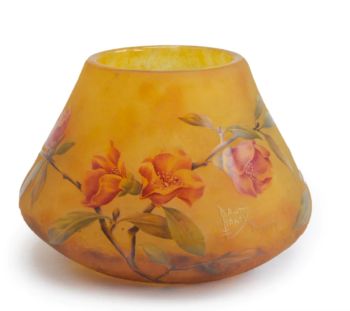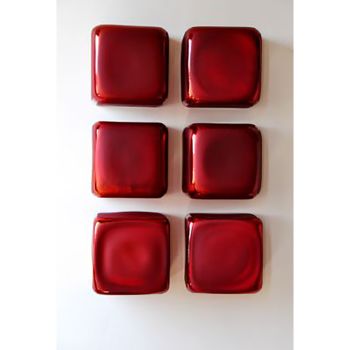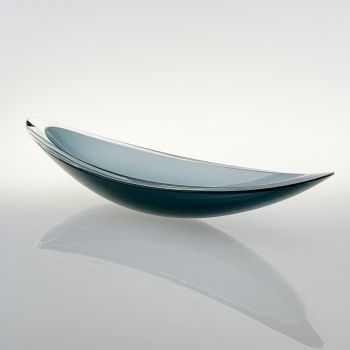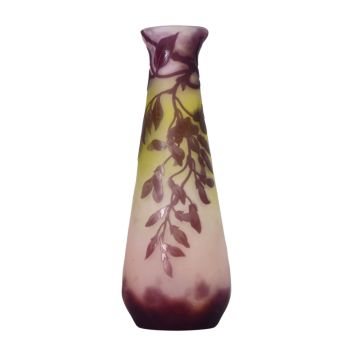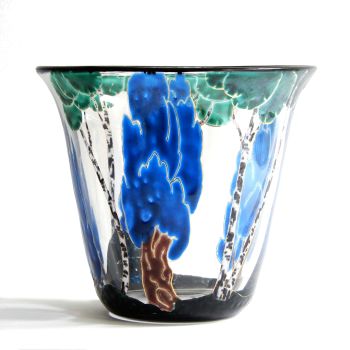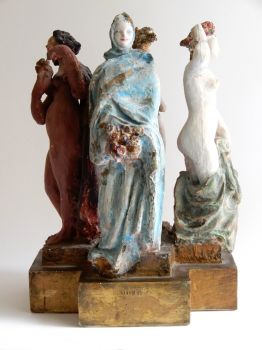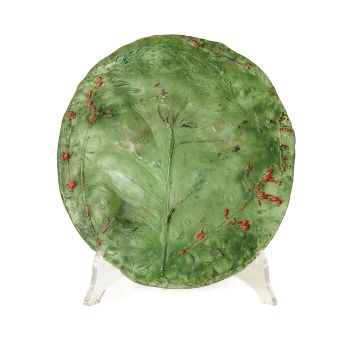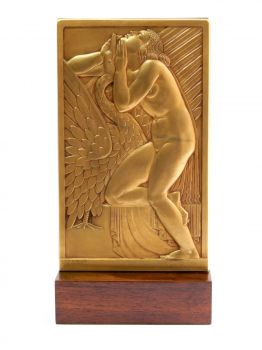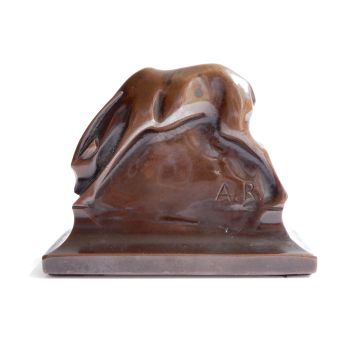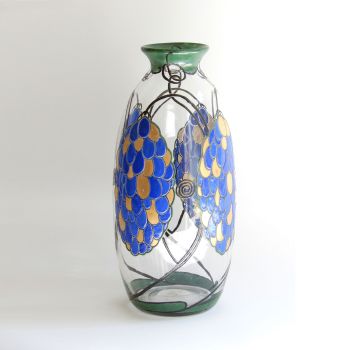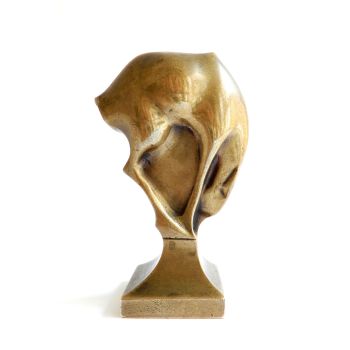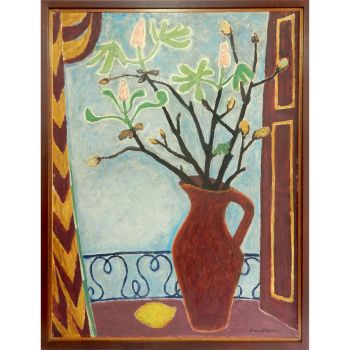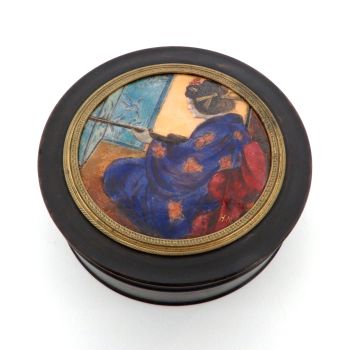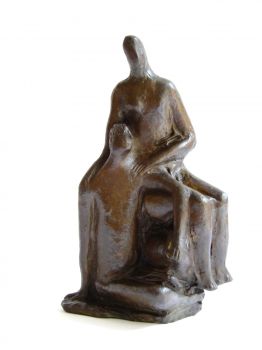Small vase 'Oléron' or 'Petits poissons' 1928 - 1932
René Lalique
Glas
9 cm
ConditionExcellent
Preis auf Anfrage
Dille Art
- Über KunstwerkAbout this piece
Spherical vase with numerous small fish, the vase is called 'Oléron' but is also called 'Petits poissons'.
The vase is extremely refined and beautifully made, it is executed in opalescent glass. The glass consists of multiple layers of opalescent and transparent glass on top of each other, this can be clearly seen at the neck, like the rings of a tree, you see a kind of rings that differ in colour intensity, those are the different layers of glass, (cased opalescent glass), it is a difficult technique. The vase still has very light traces of a patina, so it has had a patina. Through use and especially through cleaning the vase, the infamous annual scrub, the patina has been lost almost completely. In itself, this is not a problem at all because it was an addition to the design. Lalique originally made and sold the vase with and without patina. It just depended on the preference of the buyer. To achieve opalescent glass, a special alloy is needed, everyone had their own secret recipe. René Lalique used, in addition to the usual ingredients such as silicon dioxide or sodium, arsenic, which was banned after the war, and real gold, to increase the colour intensity. Opalescent glass has the special property that it appears bluish/white when backlit, and when light shines on the vase, the glass gets an intense golden glow, as if the sun is shining on it. Very beautiful. The first photo was taken while the vase was placed in front of the window with the sun shining outside. The rather distracting background has been removed, but nothing has been done or altered to the vase itself.
The vase is blown into the mould. It is a design by René Lalique from 1927 and has model number 1008. It was listed in the catalogue of 1928 and 1932.
The vase is signed on the underside with: 'R. Lalique, France, No. 1008'. This signature is applied with the wheel (molette). This way of signing, with the addition 'France' and the model number, was only used between 1928-1932. After 1932, the model number was omitted. According to literature, this was also only done with objects that were blown into the mould, very occasionally an object was still signed in this way if the pressed signature was not clear.
At some point, in the early 1930s, René Lalique, partly due to the crisis, decided to no longer produce designs with labour-intensive finishes. This vase was also part of that decision, and it is therefore no longer mentioned in the 1937 catalogue.
The Municipal Museum of The Hague also has an opal Oléron vase in its collection. - Über KünstlerRené Jules Lalique (6. April 1860, Ay, Marne - 1. Mai 1945, Paris) wurde am 6. April 1860 in Ay, Marne geboren. Er war ein französischer Glasdesigner, der für seine Kreationen von Glaskunst, Parfümflaschen, Vasen, Schmuck, Kronleuchtern, Uhren und Motorhaubenornamenten bekannt war. 1872, als er zwölf Jahre alt war, trat er in das College Turgot ein, wo er mit dem Zeichnen und Skizzieren begann. Er besuchte Abendkurse an der Ecole des arts decoratifs. Er arbeitete dort von 1874 bis 1876 und verbrachte anschließend zwei Jahre an der Crystal Palace School of Art in Sydenham, London. Am Sydenham Art College wurden seine Fähigkeiten für Grafikdesign verbessert und sein naturalistischer Umgang mit Kunst weiterentwickelt. Nach seiner Rückkehr aus England arbeitete er als freiberuflicher Künstler und entwarf Schmuckstücke für die französischen Juweliere Cartier, Boucheron und andere. 1885 eröffnete er sein eigenes Geschäft und entwarf und fertigte seinen eigenen Schmuck und andere Glasstücke. Bis 1890 wurde Lalique als einer der bedeutendsten Jugendstil-Schmuckdesigner Frankreichs anerkannt. Schaffung innovativer Stücke für Samuel Bings neuen Pariser Laden Maison de l'Art Nouveau. Er wurde einer der bekanntesten auf seinem Gebiet, sein Name steht für Kreativität, Schönheit und Qualität. Lalique war am bekanntesten für seine Kreationen in der Glaskunst. In den 1920er Jahren wurde er für seine Arbeit im Art-Deco-Stil bekannt. Er war verantwortlich für die Wände aus beleuchtetem Glas und eleganten farbigen Glassäulen, die den Speisesaal und den "großen Salon" der SS Normandie füllten, sowie für die Innenausstattung, das Kreuz, die Bildschirme, die Reredos und die Schrift der St. Matthew's Church in Millbrook in Jersey ( Laliques "Glaskirche"). Seine früheren Erfahrungen in Ay waren sein bestimmender Einfluss in seiner späteren Arbeit. Infolgedessen zeigen viele seiner Schmuckstücke und Vasen Pflanzen, Blumen und fließende Linien. Sowohl einzigartige als auch kommerzielle Werke von René Lalique befinden sich in den Sammlungen zahlreicher öffentlicher Museen auf der ganzen Welt, darunter das Museu Calouste Gulbenkian in Lissabon, das Musée Lalique und das Musée des Arts Décoratifs in Frankreich, das Schmuckmuseum Pforzheim in Deutschland das Victoria and Albert Museum in London, das Metropolitan Museum und das Corning Museum im Bundesstaat New York sowie das Rijksmuseum in Amsterdam. René Lalique starb am 1. Mai 1945 in Paris.
Sind Sie daran interessiert, dieses Kunstwerk zu kaufen?
Artwork details
Kategorie
Thema
Stil
Material & Technik
Farbe
Related artworks
René Lalique
Eine sehr seltene tiefgrüne Fougeres-Vase, entworfen von R. Lalique1912
€ 8.950Lennart Booij Fine Art and Rare Items
 Kuratiert von
Kuratiert vonSilla Scheepens
1 - 4 / 12Gabriel Argy-Rousseau
Gabriël Argy-Rousseau – Crabes et Algues vase – 19201920 - 1929
Preis auf AnfrageAntiques Emporium
Unbekannter Künstler
Japanese art deco lacquervase with Scarab beetle motif1920 - 1950
Preis auf AnfrageDille Art
1 - 4 / 24Gabriel Argy-Rousseau
Gabriël Argy-Rousseau – Crabes et Algues vase – 19201920 - 1929
Preis auf AnfrageAntiques Emporium
Johann Loetz (Lötz) Witwe Klostermühle
Johann Loetz Witwe - Phänomen Genre 7773 – Orange1900 - 1910
Preis auf AnfrageAntiques Emporium
1 - 4 / 24- 1 - 4 / 24
Unbekannter Künstler
François-Théodore Legras – Tall “Fleurs de Pommier” apple blossoms vase1900 - 1909
Preis auf AnfrageAntiques Emporium
Gyrinus
Punktiertes graviertes Glas mit Putten1764 - 1766
Preis auf AnfragePeter Korf de Gidts - Antiquairs
Unbekannter Künstler
Cristallo façon de Venise Trinkglas1600 - 1650
Preis auf AnfragePeter Korf de Gidts - Antiquairs
Rene Rietmeyer
"Firenze and Murano September 2007"2007
Preis auf AnfrageEuropean Cultural Centre Collection
Johann Loetz (Lötz) Witwe Klostermühle
Johann Loetz Witwe – Ausfuehrung 146 Titania vase – 19121910 - 1919
Preis auf AnfrageAntiques Emporium
1 - 4 / 24- 1 - 4 / 12






